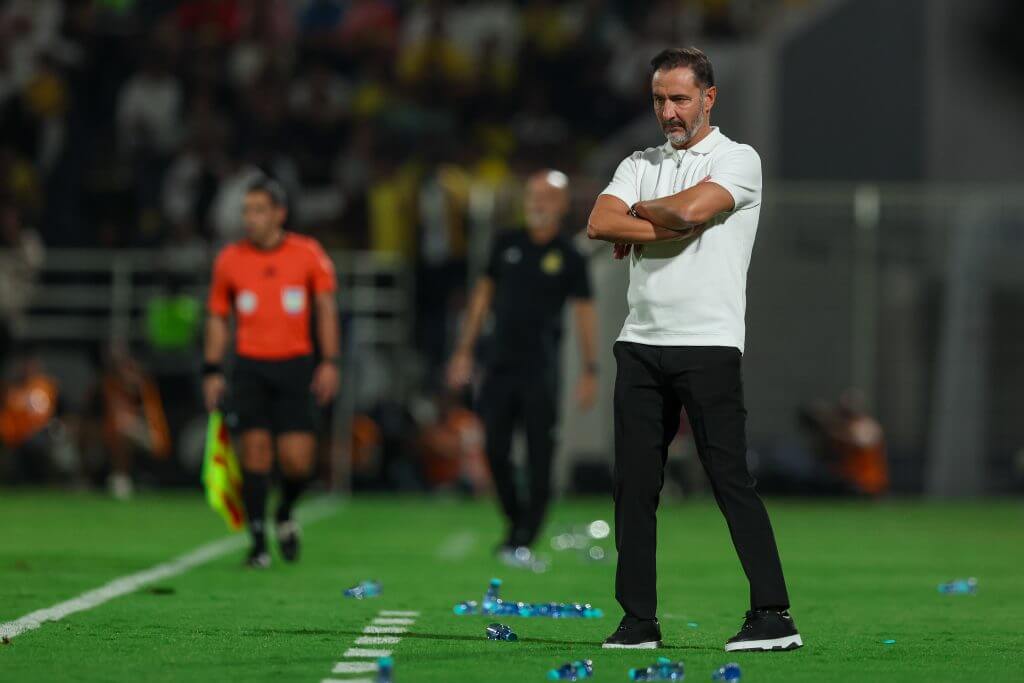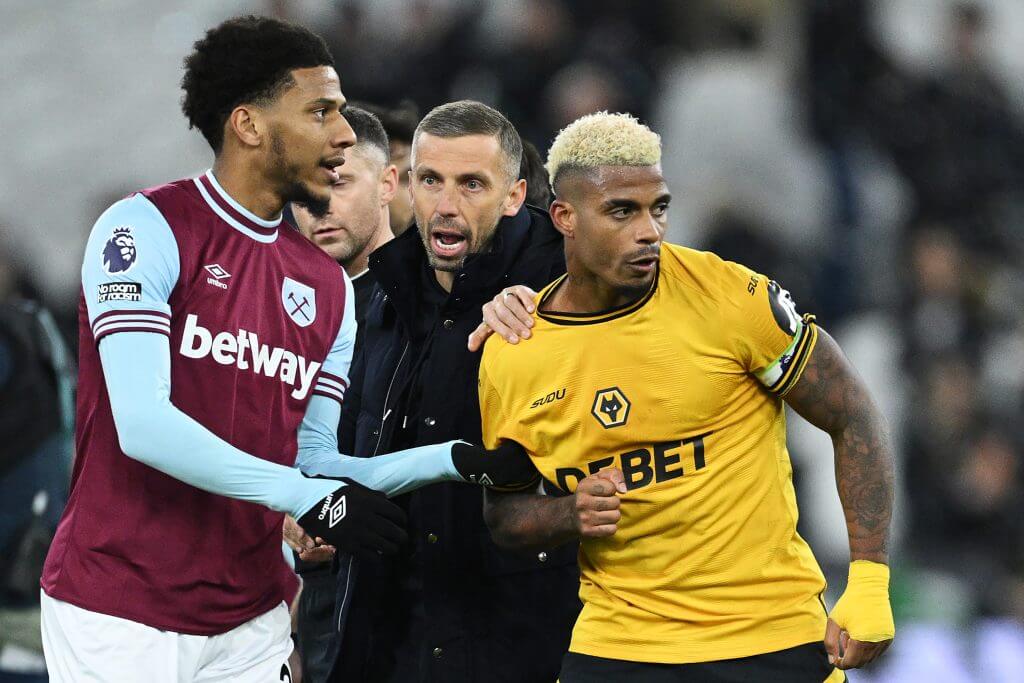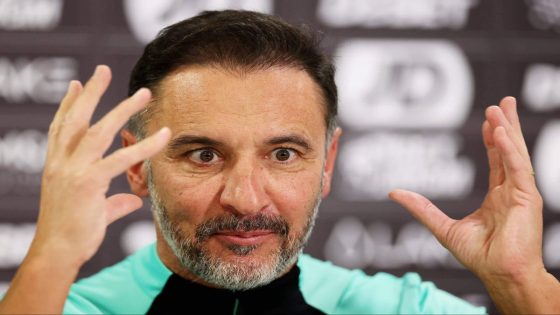New Wolverhampton Wanderers head coach Vitor Pereira has waited 14 years for his chance to manage a team in the Premier League.
Now that he is here, he plans to infuse his team with confidence and a clear tactical plan to achieve more than just survival in the relegation battle. As the 56-year-old former Porto boss spoke to the media for the first time before Wolves’ trip to Leicester City this weekend, the lasting feeling was that he is unafraid to make his ambitions known because he is confident that he will meet them.
He set the goal, now fulfilled, of becoming a Premier League manager while still coaching in his homeland. He has taken a roundabout route via 10 clubs in 13 years, including his most recent employer Al Shabab of Saudi Arabia, to get to Molineux, but his faith never wavered.
Wolves fans will need to have the same trust in his methods if Pereira is to lift their side out of the drop zone with 22 league games left to play. Here are five key takeaways from his first press conference.
Tactical plans at heart of Pereira’s ideas for Wolves
Though Pereira did not have to think hard about swapping the Saudi Pro League for the Premier League, he has arrived in the West Midlands prepared. He said that he and his staff — a five-person group yet to be announced — “studied before I accepted the job, we studied the team” as he learned of Wolves’ approach after twice coming close to joining Everton in the last 14 years.
“My idea is to create an identity, a tactical identity,” he said. “The first training, we started to work for this identity, the way of playing. With very clear communication we go on the pitch and we start to do the steps to increase this idea and try and make the players comfortable in their positions and in their roles.”
Communication is likely to be key and while Pereira started his press conference by apologising in advance for anything getting lost in translation as he learns to tune into the local accent, his English was strong. He also speaks French and Spanish as well as his native Portuguese, which will enable him to communicate with all of the squad.

Personal relationships and relaying information are key skills learned as part of the Portuguese coaching method of tactical periodisation, favoured by Jose Mourinho and Andre Villas-Boas, both predecessors to Pereira at Porto. All three attended university to learn the principles of coaching from Vitor Frade, an influential figure in teaching a combination of physical, technical, tactical and psychological elements of football that lie at the heart of the tactical periodisation model.
Pereira’s suggestion that he wants to guide his team “like a tactical GPS to put them in the same direction, to connect them and to face with confidence and play with courage” suggests he knows Wolves’ intended destination. In his own words, “It’s not (just) to survive.”
The hard-working one
Mourinho’s self-described status as “a special one” has gone down in English football history. Jurgen Klopp claimed to be “the normal one” and while Pereira would not be drawn on an exact turn of phrase, the theme of his first press conference was that he is the hard-working one.
The Premier League has been his dream and though it has not been a direct path from his early success at Porto — as was the case for Mourinho and Villas-Boas — his sense of urgency to make it here did not diminish. His love of football and appetite to always be involved in the game has, by his own admission, led to him taking jobs at the first opportunity to get back on the pitch rather than waiting for the best fit.
Spells at Olympiacos and Shanghai Port were among the successful stints at clubs around the world while he suffered relegation at 1860 Munich and a tricky transition from managing Corinthians to Flamengo in Brazil.
His brush with taking over at Everton did not diminish his hopes of making his dream a reality.
“I am a very confident guy, I believe in my work and the work of my staff,” he said. “From a young age, I decided in my mind that I will be a coach. I started to be a coach and after I put in my mind I would be a champion in Portugal. And I was (a) champion in Portugal, I played Champions League. I wanted to be a champion in another country and I was. My other target was to be in England and I’m here. It means if you must work and work and go to Brazil, Greece, Saudi Arabia, in the end, I was here.”
Players – decisions to be made and a desire for new faces?
After just two training sessions with his new players, Pereira was reserved when asked to pass judgement on his squad. However, his belief that “we need to improve some aspects of the game but we have good players” is a positive take. It is a contrasting message to outgoing boss Gary O’Neil’s assessment that it “doesn’t look like” there is an answer to Wolves’ problems in the dressing room a week ago. The new manager’s job is to unify a club in a difficult place.
The new appointment could mean another change to the Wolves captain, despite Nelson Semedo being handed the armband just one week ago. Pereira says he is “trying to understand where the leadership is on the pitch” and studying his players before he makes a decision on the captaincy — although he praised Semedo.
With the January transfer window just around the corner, Pereira has the chance to shape the squad into one he best believes can adapt to his brand of football. Identity is at the heart of his approach to the new job.
“The next step will be to increase the squad with players to play in the way that I want to play,” he said. “But results force this kind of game. The two trainings that we did, they were very open to understand. They were focused because everybody knows that we have the responsibility to do better. To work at the limit to do better.
“After some time, you will see Wolves playing the game of Wolves. When you see Wolves playing, you will see a style of play. If the results don’t come, it’s a problem. This is the moment to connect them, give confidence and be responsible. We need to be humble, to work hard to know that we need to win games.”
Communication will be at the heart of good discipline
Emotions have been running high in recent weeks for Wolves. Things spilt over for Rayan Ait-Nouri against Ipswich Town, Mario Lemina against West Ham United and Jose Sa against Bournemouth. Pereira hopes to nip that behaviour in the bud with a plan with “communication, rules, tactical discipline and responsibility”, although the fresh start should help.

Known for his demands for loyalty and his potential to be fiery, he set out his tolerance on players making errors of judgement. Passion is not to be punished but there is a line for Pereira’s players.
“When I do something bad, a bad decision, the consequences come later,” he said. “It means that we need to slow down a little bit the emotions, show emotional control. When the results do not happen, you start to be nervous. You start to lose a little bit the focus, this is the moment that we need to realise that we need to look inside of ourselves at what we can do to help the team.
“I’m not a guy to punish when someone does the first mistake. But the second mistake with me is a problem. I hope with communication we can avoid this kind of situation.”
Confidence and freedom will be key
“The first words that I said to my team was what I like in a person, not in a player,” Pereira said. “In a person is the courage to be themselves. The confidence doesn’t come from outside, it must be found inside us. This was my life and this is what I believe. It is about going inside you and finding confidence.
“Express the personality of the coach. I had a tough life, working a lot to achieve my goals and they need to have this confidence inside. I will try to transmit the confidence and personality.”
While tactical concerns, like Wolves’ defensive record from set pieces, will be high on the agenda, Pereira’s commitment to breathing new life into a talented group of players is admirable. He will encourage individual expression to help the team but results will drive the players’ ability to rediscover confidence and form faster than anything else.
(Top photo: Jack Thomas – WWFC/Wolves via Getty Images)





